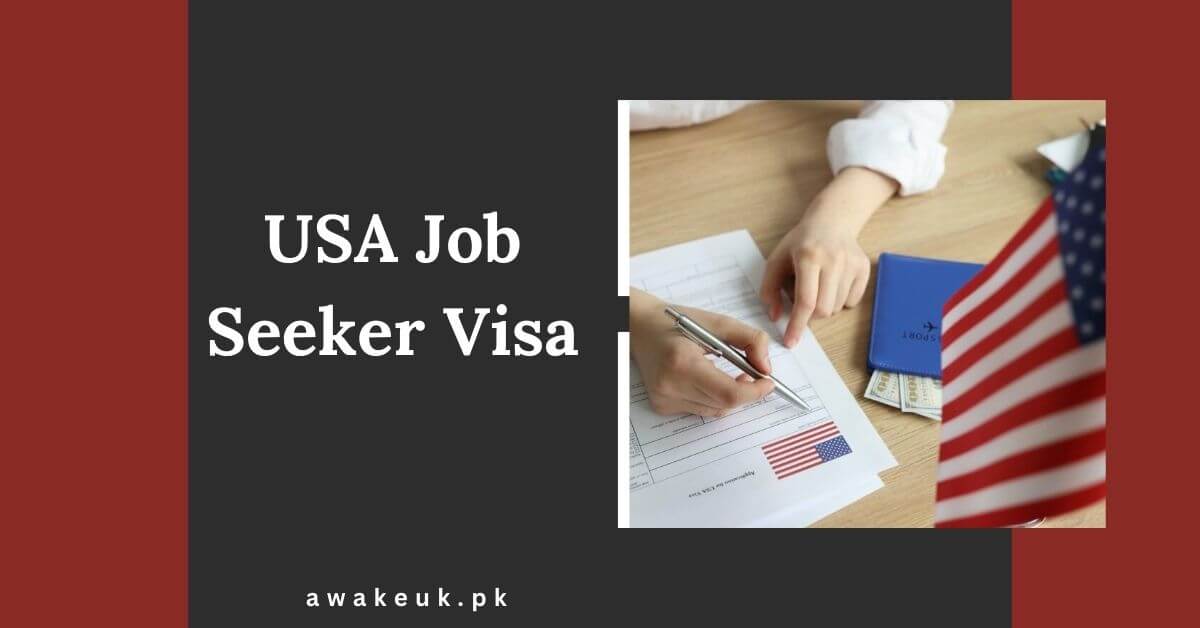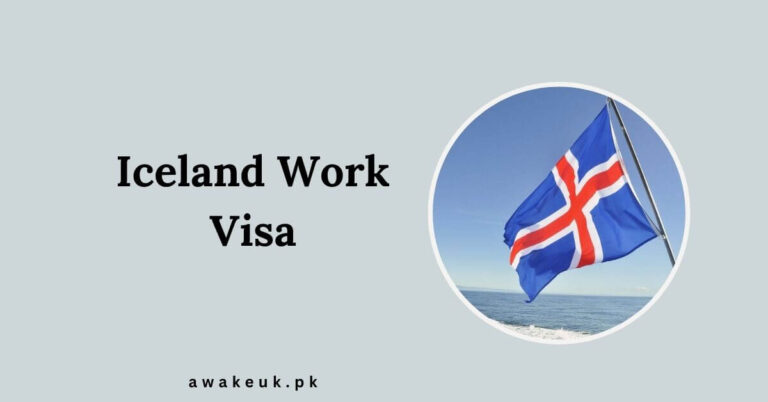USA Job Seeker Visa 2025 – Complete Guide
Work visas are government-issued orders that are regulated by mobility specialists in the host country. They permit an outside laborer to reside and engage in employment within the borders of another country for a predetermined period and are subject to the migration laws of that nation. Additionally, they evaluate the applicant’s business capabilities and work involvement, the country’s requirements for remote specialists, and the prerequisites for managers.
Consequently, this article will analyze the unique characteristics of American work visas by deconstructing their qualifications, applications, and rationales. Are you prepared to identify the appropriate visa for your American aspirations? Let us plunge in!
What is a USA Work Search Visa:
The following are the types of employment visas that are available in the United States:
- H-1B Visa: This visa is intended for individuals who possess specialized or speculative expertise in fields such as IT, design, or back. A substantial work offer from a US boss who will provide support and complete the critical appeal procedure is necessary for candidates.
- L-1 Visa: The L-1 visa promotes intra-company exchanges among employees of a global organization who have locations in both their home country and the United States. It allows for the exchange of specialized information between supervisors, administrators, or employees for a maximum of seven years, contingent upon the subcategory.
- E-2 Settlement Financial Specialist Visa: This visa is ideal for businesspeople and investors from countries that have agreements with the United States. It allows individuals to work in the United States based on a substantial project in a US business. Candidates must demonstrate that their conjecture is speculative and that they hold a controlling position within the organization.
- O-1 Visa: The O-1 visa is intended for individuals who have demonstrated exceptional accomplishments in the arts, television, film, or sciences, or who have exhibited exceptional abilities in commerce, education, or athletics. Candidates must demonstrate these capabilities or accomplishments and possess a specific job offer within the United States.
- TN Visa: This visa, which is issued under the North American Free Exchange Understanding (NAFTA), allows citizens of Canada and Mexico to work in the United States for a limited period in specific occupations.
Eligibility:
- The employer may be required to provide a substantial work offer, verification of employment, and supervisor sponsorship from a U.S.-based boss in order to support the work visa application.
- A labor certification from the Division of Labor is typically required for certain work visas to demonstrate that there are no qualified US laborers available for the position.
- Non-immigrant intent: In order to obtain a brief work visa, the candidate may be required to demonstrate that they have a domicile abroad that they intend to return to following their authorized stay in the United States.
- Educational requirements and professional qualifications: A candidate must possess a sufficient level of education, including advanced degrees, in the relevant discipline in order to qualify for a number of work visas. Furthermore, certifications and licenses that are proficient may be indispensable.
- Validation of vaccinations and health requirements: Restorative exams and substantiation of immunizations may be required for a small number of work visa candidates.
- Proof of sufficient budgetary assets: A small number of work visa applicants must demonstrate that they possess the necessary financial assets to support themselves while working in the United States.
- Fingerprinting and foundation check: Security and foundation checks are mandatory for all work visa candidates.
- Recording expenses must be paid by the candidate, and the amount of these expenses is contingent upon the visa category for which they are applying.
Check Also: Iceland Work Visa – Apply Now
Benefits of USA Job Seeker Visa:
- Opportunity to Investigate Job Markets: Enables individuals to attend in-person interviews and network, thereby enhancing their likelihood of securing employment.
- Transition to Employment-Based Visa: The process of transitioning to an employment-based visa is simplified upon the receipt of a job offer.
- Improved Credibility with Employers: Potential employers perceive one’s dedication and professionalism as a result of their legal presence in the United States.
- Access to Networking Opportunities: Engage in professional events, career expos, and employment fairs to establish direct connections with employers.
- Legal Work Authorization: The H-1B visa and Optional Practical Training (OPT) for students are examples of visas that allow individuals to legally work in the United States.
- Global Opportunities: Access to employment openings in some of the world’s most prominent companies and industries.
- Cultural Adaptation: The opportunity to spend time in the United States enables individuals to gain a comprehensive understanding of the societal norms, legal environment, and work culture, which is essential for long-term success.
- Diverse Employment Sectors: Opportunities exist in a variety of industries, such as finance, education, healthcare, and technology, contingent upon qualifications and talents.
- Potential for Permanent Residency: Employment may result in pathways such as Green Card sponsorship, which provides long-term residence and employment rights.
- Family Inclusion: Certain visa categories permit family members to accompany and, in certain circumstances, also work or study.
Application Process:
- Obtain a Job Offer: Begin by obtaining a job offer from a US-based company that is willing to provide support for your visa application. This is typically the starting point for the majority of temporary work visa proceedings in the United States.
- Accumulate documentation: Gather all essential documents, such as substantial international identification cards, business contracts, substantiation of capabilities, and any other archives necessary for your specific visa category.
- Employer Files an Appeal: Your manager is required to submit an appeal to the significant migration specialists. For the most part, this request encompasses the benefits of the job offer and the rationale for employing an external worker.
- Application Fees: The visa application expenses that have been specified must be paid. The charge amounts and payment methods may vary based on the specific visa type and the country of application.
- Arrange a visa interview: Schedule a meeting at the government office or US office in your home country. Prepare for the meeting by conducting research on potential inquiries and verifying that all of your reports are in order.
- Attend the Visa Meeting: Attend the visa meeting with the department officer. Provide vital documentation to support your application and respond honestly to all inquiries.
- Await Processing and Decision: After the meeting, await the processing of your visa application. The handling periods may vary based on the visa category and the country of origin. Follow the appropriate channels provided by the office or embassy to monitor the status of your application.
- Visa receipt: If your application is approved, obtain a transitory work visa and prepare to relocate to the United States. Ensure that the conditions and duration of your visa are in accordance with the migration laws of the United States.
Visa Cost:
- $460 in petition fees
- $185 in application expenses
- The American Competitiveness and Workforce Improvement Act imposes fees ranging from $750 to $1,500.
- $500 in expenditures for fraud anticipation and discovery
Conclusion:
A work visa is a government-issued document that enables a foreign laborer to reside and work in another country for a predetermined period. Obtaining an appropriate visa is the initial step for a citizen of a remote nation who wishes to conduct business in the United States. Transitory and changeless employment statuses are distinguished in visas. The candidate will apply for an interim work visa if the employment is for a fixed term. Conversely, an alien visa allows its holder to reside and work in the United States indefinitely. Conversely, a work visa provides specific legal rights and protections within the United States, but it also entails a set of obligations that must be adhered to.
Frequently Asked Questions:
-
What is a USA Job Seeker Visa?
A USA Job Seeker Visa typically refers to a visa that allows foreign nationals to enter the U.S. to look for employment. The most common visa used for this purpose is the B-1 (business visitor visa) or a visa like the H-1B once employment is secured.
-
What are the eligibility requirements?
Eligibility for a B-1 visa requires demonstrating that you will return to your home country after your job search. For work visas like the H-1B, you need to have a valid job offer from a U.S. employer.
-
How can I apply for a USA Job Seeker Visa?
There is no specific visa that is specifically designed for job seekers. However, individuals can apply for a B-1 visa to attend job interviews or search for a job in the U.S. Once you receive a job offer, you can proceed to apply for a work visa such as the H-1B.



